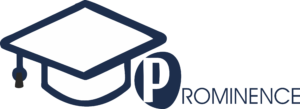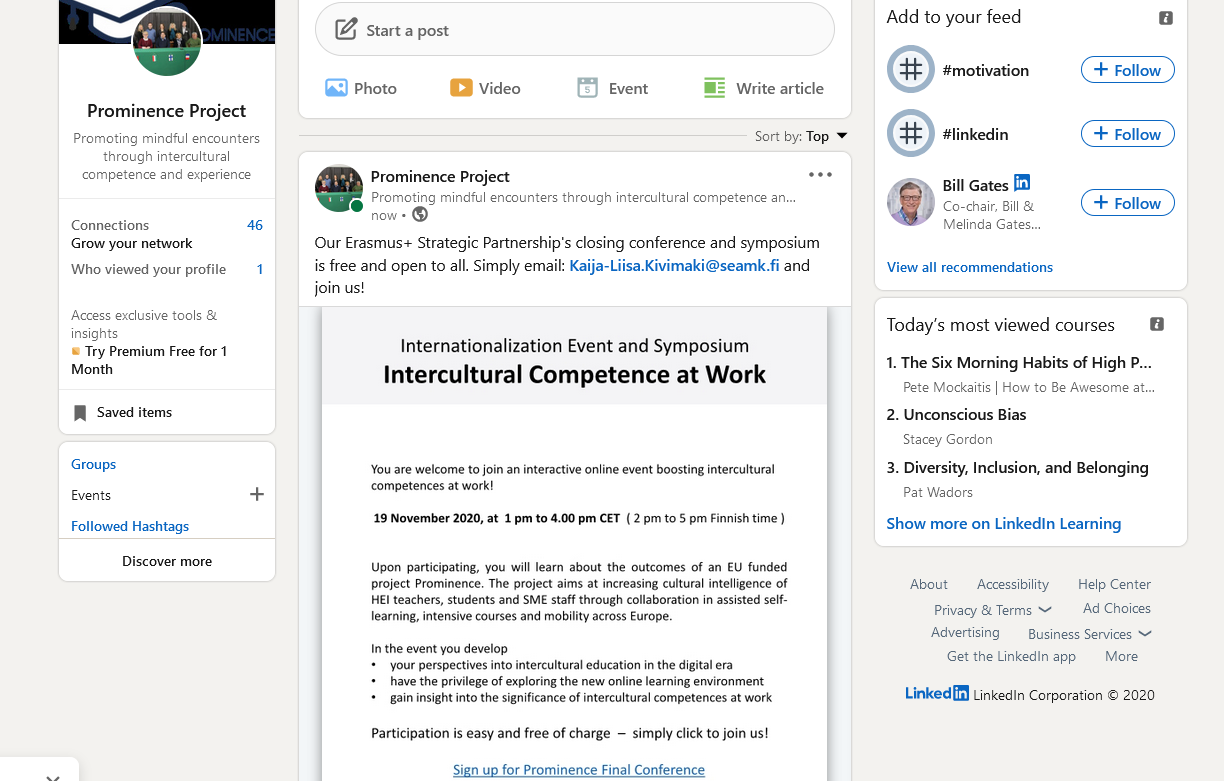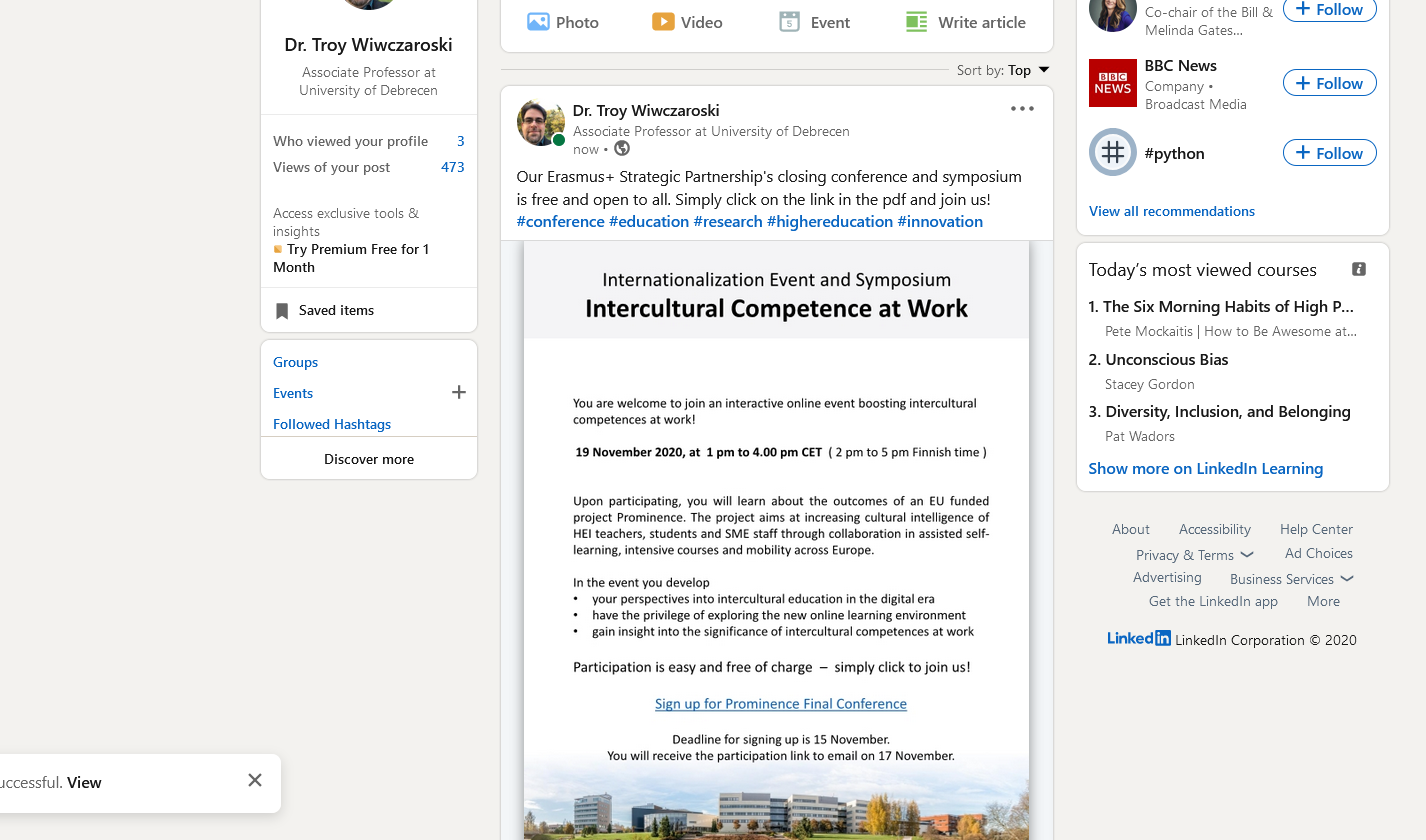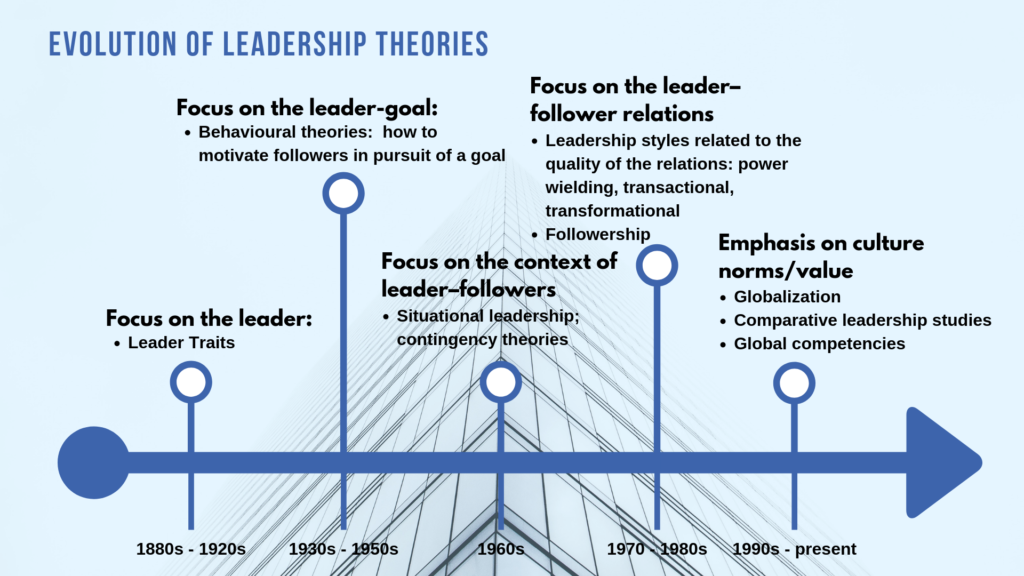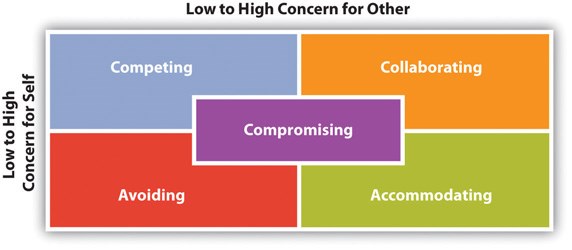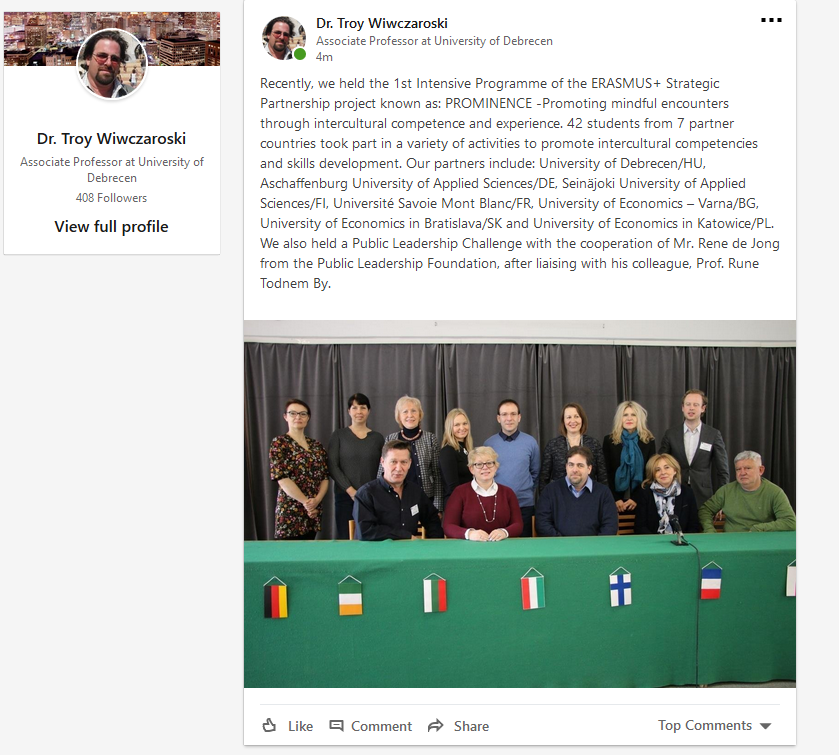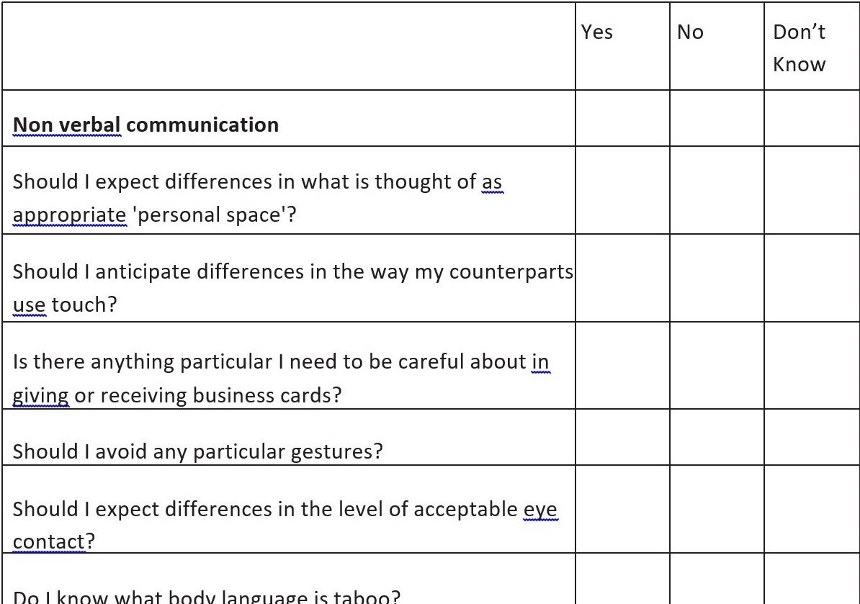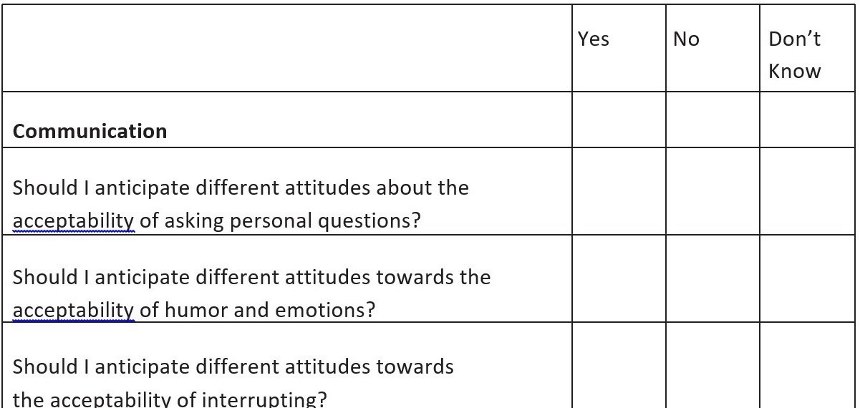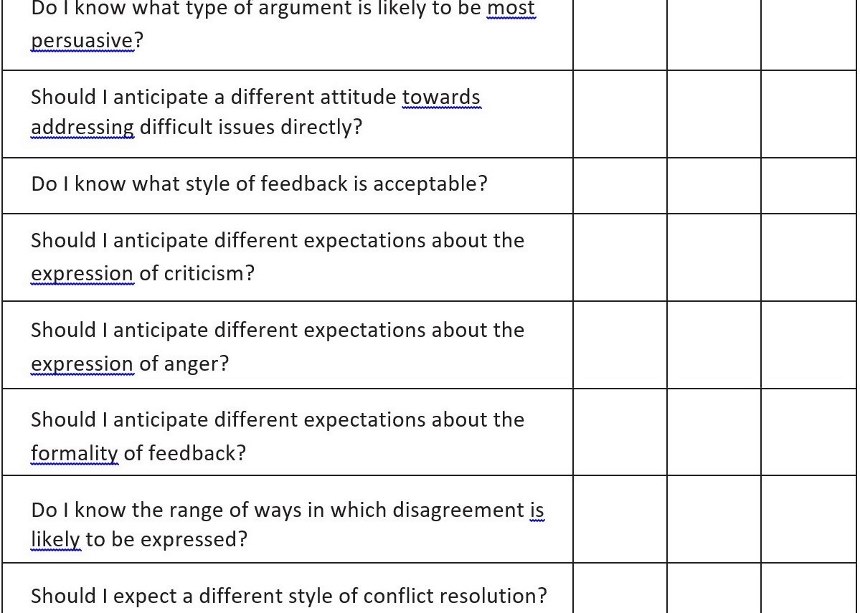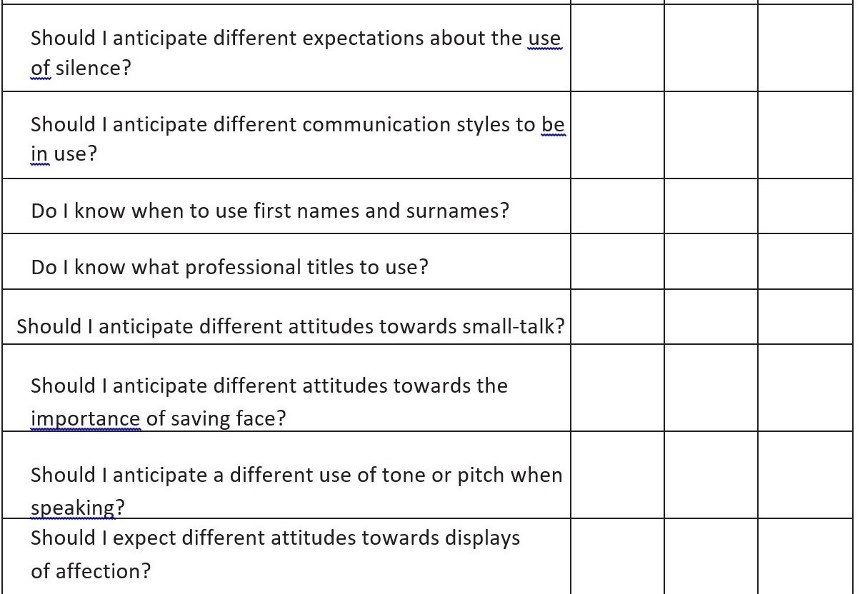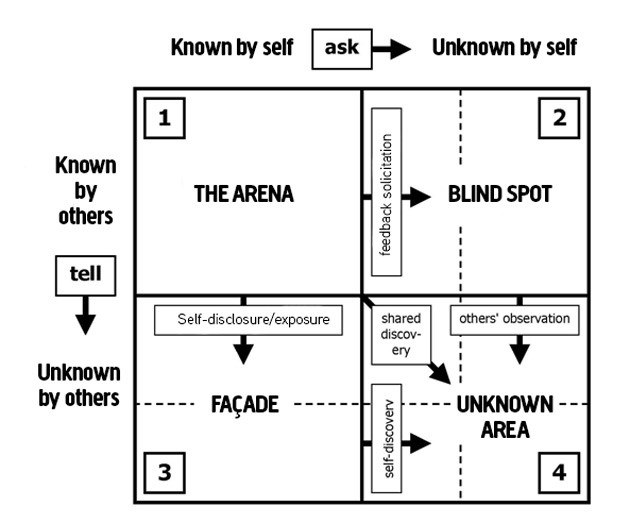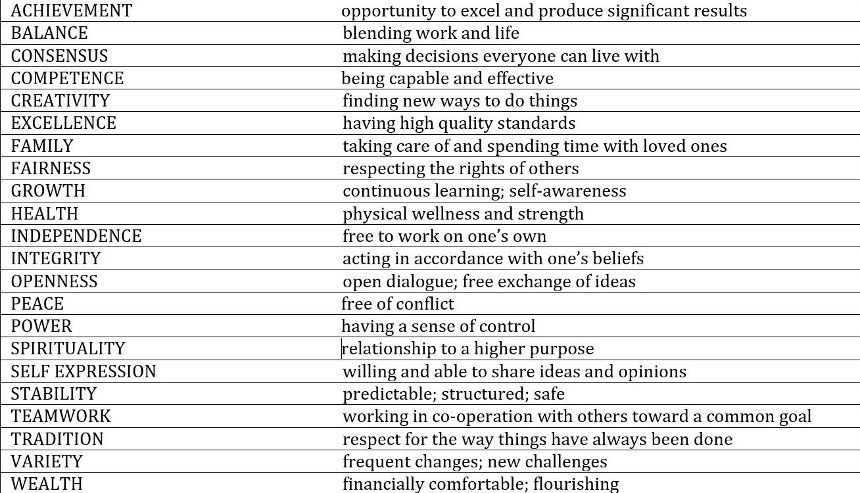PROMINENCE INTENSIVE PROGRAMME BRATISLAVA
Different Worlds, Different Languages: Getting to Grips with Cultural Diversity
Date: 19-23 March 2018
Venue: University of Economics in Bratislava
Faculty of Applied Languages
Dolnozemská cesta 1
852 35 Bratislava
Slovak Republic
Prerequisites:
- critical thinking
- analytical skills
- debating skills
- creative skills
- research skills
- reflective skills
- time management skills
- communication skills
- English language skills
Aim and Objectives: Cultural Intelligence Through Intercultural Awareness Development and Experiential Learning
- Target groups learn to articulate insights into their own cultural rules and biases (metacognitive capabilities); demonstrate sophisticated understanding of the complexity of cultures (cognitive capabilities); cope with their own emotions (motivational capabilities); articulate a complex understanding of cultural differences in verbal and nonverbal communication (behavioural capabilities); learn to negotiate a shared meaning base on culture-bound differences (all-inclusive intercultural competence).
- The first IP is concerned with one of the thematic areas of Prominence Interactive, i.e. cultural intelligence for individuals. It is the preparatory phase of content-creation. Content-creation is focused on intercultural awareness development to create theoretical and pragmatic knowledge through lectures, presentations, round-tables, knowledge tests and quizzes, contest and sweepstakes, polls and surveys, and interactive infographics; and on experiential learning to develop and enhance cognitive, metacognitive, motivational, and behavioural capabilities through research tasks, and project work, and videos of real-life experiences. Content created during the 1st IP will be transferred into the online platform. Thus, target groups will create, test, and use the content of the online platform during the first IP.
Preparatory Phase: November 2017-Mid-March 2018
Aims
- To develop and enhance intercultural awareness through cognitive perspective (to understand cultural differences and similarities), cultural awareness perspective (to understand the universal and specific aspects of culture), and self-awareness perspective (to identify attitudes, opinions, and biases embedded in one’s own culture).
- To make and present a video at the 1st Prominence Intensive Programme
Prerequisites
- Basic information on one’s own culture
- Knowledge of deep structured cultural values in one’s own culture
Task
- An Inspirational Country Guide to Culture, Customs, and Etiquette (a five/ten-minute video)
Focus on things that may surprise others about life in your own culture and make a ten-minute inspirational video that includes country-specific basic factual information and knowledge about deep structured cultural values in your own country.
Basic Concepts
- The basic information concerns the profile of the culture regarding history, geography, family, and social organisation, art, and political system. This can be obtained through reading, didactic learning, or other media without the need to interact with the individuals of the target culture for collecting information. Such learning includes asking general questions about what the traditional or typical cultural beliefs, behaviours, family structures and relationships, life cycle, positional roles, interpersonal relationships, communication, decorum and discipline, religion, health and hygiene, food, dress, and personal appearance, history, and traditions, and celebrations, education, work and play, time and space, natural phenomenon, pets, and other animals, art and music, and expectations, and aspirations. E.g. Kohls (1984) determined 10 basic areas that comprise foundational cultural information: food, clothing, shelter, family organisations, social organisations, government, defense, arts, knowledge, and religion. E.g. the David M. Kennedy Centre for International Studies classifies the understanding of a culture into 4 categories: customs and courtesies including greeting, visiting, eating, personal appearance, and gestures; the people including general attitude, population, language, and religion; lifestyle including the family, dating and marriage, social and economic levels, diet, work schedules, recreation, and holidays; and the nation including land and climate, history and government, economy, education, transportation, and health).
- Cultural values are the most fundamental framework of the deep structure of a culture. Understanding cultural values through the direct and indirect experience with people is the key to the awareness, respect, and acceptance of the contrasting cultural practices. Six representative models are frequently used to examine cultural values: Parsons, Kluckhohn and Strodtbeck, Condon and Yousef, Hall, Hofstede, and Swartz.
- Linking the development of cultural intelligence to experiential learning would allow students to learn and benefit from intercultural experience through the utilisation of the four stages of the experiential learning It involves two fundamental processes (grasping and transforming) that enable learning from the intercultural experience. Students participate in an all-inclusive process of experiencing, reflecting, thinking, and acting in an iterative mechanism that is receptive to the intercultural learning situation. Specific tangible events (concrete experience) are the basis for descriptive processing (reflective observations) which are then assimilated and disintegrated into conceptual interpretations (abstract conceptualisation) that become the basis for action (active experimentation). The fourth step, or actively testing the real world, accelerates new experience for the students and stimulates another cycle of experiential intercultural learning.
PROMINENCE INTENSIVE PROGRAMME
DAY 1 – Monday (19 March 2018)
Venue: Conference Room V1, New Building, University of Economics in Bratislava
| Time | Activity | Responsible person/ |
| 9:00-9:30 | Welcome Speech | Ildiko Némethová, Slovakia
Mária Bláhová, Slovakia |
| 9:30-9:45 | Kick-off speech | Troy Wiwczaroski, Hungary |
| 9:45-11:15 | Team Building Techniques | Kaija-Liisa Kivimaki, Finland |
| 11:15-11:30 | COFFEE BREAK | |
| 11:30-13:00 | Developing CQ Knowledge Inspirational Country Guides to Culture, Customs, and Etiquette five/ten-minute videos |
Teams from partner countries
|
| 13:15-14:00 | LUNCH | School Canteen
New Building |
| 14:00-15:00 | Developing CQ Knowledge through Experiential Learning Things You Did Not Know About the World and How to Accept Them An inspirational story |
Zuzana Kloknerová, Slovakia |
| 16:00-17:30 | International Buffet Bring a typical food from your own country for the big international buffet. Eat, meet, and mingle. |
Stephane Ganassali, France (Opening speech) |
DAY 2 – Tuesday (20 March 2018)
Public Leadership Challenge on Educating for Social Responsibility /or/ How to Create a Socially Responsible Society of Culturally Intelligent Global Leaders?
Venue: Conference Room V1, New Building, University of Economics in Bratislava
| Time | Activity | Responsible person/s |
| 11:15-13:00 | COFFEE BREAK | |
| 13:00-13:15 | Welcome Speech
Public Leadership Foundation Public Leadership Challenge |
Ildikó Némethová
René de Jong René de Jong |
| 13:15-13:35 | Introduction to Social Responsibility | Andrej Kalász |
| 13:35-14:15 | Speeches by Stakeholders
Public Leadership Challenge and the Key Question: |
Kenneth Ryan, KPMG
Marian Gordzielik, German Embassy Jana Péliová, University of Economics in Bratislava |
| 14:15-15:15 | Diagnosis and Solution
Teams identify the needs of stakeholders |
Teams of students |
Detailed Information about Day 2
Introduction
Leadership is all about change; a transformative change where the ethics of individuals are integrated into the mores of a community as a means of evolutionary social development. A global leader must extend his or her mind to embrace the entire world with hundreds of cultures, countries, and business contexts. Universities must help students become cosmopolitan citizens who manage to make their way into other cultures, through listening, looking, intuiting, and reflecting, and to develop confidence that they can make a difference in the world.
The Concept of Social (Corporate) Responsibility
Social responsibility is defined as personal investment in the well-being of others and of the planet. It takes intention, attention, and time. It urges education to embrace a culture that values and creates empowerment, cooperation, compassion, and respect.
The development of social responsibility presupposes political socialisation, pro-social behaviour development, psycho-social development, and moral development. An individual’s level of social consciousness determines the nature of his or her participation in the world. A person’s relationship with society includes powerful factors such as interconnectedness, emotion, influence, and vulnerability.
Education should help individuals develop a positive relationship with society by promoting a passionate and informed engagement with the world around them. Education should help individuals develop their social consciousness, their interdependence; they should become part of a community, and develop basic social skills,
Corporate social responsibility encompasses not only what companies do with their profits, but also how they make them. It goes beyond philanthropy and compliance, and addresses how companies manage their economic, social, and environmental impacts, as well as their relationships in all key spheres of influence: the workplace, the marketplace, the supply chain, the community and the public policy realm. (Jane Nelson).
Corporate policies and practices that enhance the competitiveness of a company while simultaneously advancing social and economic conditions in the communities in which the company sells and operates (Michael Porter and Mark Kramer). Porter and Kramer argue that all profit is not equal. Profit involving shared value enables society to advance and companies to grow faster. They predict that incorporating societal issues into strategy and operations is the next major transformation in leadership thinking. And they assert that shared value models represent nothing less than the next evolution of capitalism.
| Public Leadership Challenge and the Key Question: |
| What kind of leadership is needed from all stakeholders to create a socially responsible society of culturally intelligent global leaders |
During the PLC, 7 teams of six students from 7 partner universities (University of Savoie, France; University of Applied Sciences Aschaffenburg, Germany; Seinäjoki University of Applied Sciences, Finland; University of Economics in Katowice, Poland; University of Economics in Varna, Bulgaria; University of Debrecen, Hungary; University of Economics in Bratislava, Slovakia) will develop an approach to leadership needed from stakeholders to create a socially responsible society. They will devote special attention to the needs and interests of the stakeholders who will present their main challenge in compliance with the topic of the PLC.
At the beginning of the PLC, all stakeholders will deliver a 5 to 10-minute speech focusing on the opportunities and challenges related to:
- educating for social responsibility in the milieu of a culturally diverse and globalised world;
- corporate social responsibility in the milieu of a culturally diverse and globalised world.
In their speech, it is important for stakeholders to focus on their own leadership role in this subject.
After the speeches, the 7 teams of six students for round 1 will examine the challenge, the interests, and the needs of all stakeholders. During this round, stakeholders will walk around to answer the teams’ questions and to clarify their interests, needs and views on the challenge.
At the end of the PLC, the teams will present their advice to the stakeholders. At this point, the stakeholders have a short plenary conversation with the teams to clarify the advice. Afterwards, the stakeholders choose which team has given the most useful, innovative advice and appoint a winner of the Public Leadership Challenge.
DAY 3 – Wednesday (21 March 2018)
DEVELOPING CQ STRATEGY
Venue: Conference Room V1, New Building, University of Economics in Bratislava
| Time | Activity | Responsible person/s |
| 9:00-11:15 | Workshop 1:
Stereotypes, Ethnocentrism, Prejudice, Discrimination |
Ján Halász
Valentína Sikelová |
| 11:15-11:30 | COFFEE BREAK | |
| 11:30-13:15 | Seven Mini Case Studies | Andrej Kiner |
| 13:15-14:00 | LUNCH | School Canteen |
| 14:00-15:00 | A Round Table on Cultural Diversity | Patrik Kozár |
| 15:00-15:30 | COFFEE BREAK | |
| 15:30-15:45 | Presentation of the task
Students are asked to a create short video addressing stereotypes, ethnocentrism, prejudice and discrimination. They address diverse groups of individuals to examine their commonly held stereotypes, their assumptions about identity, gender, power, truth, virtue, happiness, and communication. Each team will present the video at PROMINENCE FIRST IP Conference. |
Ildikó Némethová |
| 16:00-19:00 | Scavenger Hunt
An experiential learning opportunity to help students learn about the Slovak culture and the city of Bratislava |
Teams of Students
Leaders: Zuzana Kloknerová Patrik Kozár |
DAY 4 – Thursday (22 March 2018)
Venue: University of Economics in Bratislava; Conference Room V1
| Time | Activity | Responsible person/s |
| 9:00–11:15 | Creative Video Production Developing CQ Drive (1st part) |
Teams of students |
| 11:15-11:30 | COFFEE BREAK | |
| 11:30-13:00 | Creative Video Production Developing CQ Drive (2nd part) | Teams of students |
| 13:00-14:00 | Lunch | |
| 14:00-17:00 | Developing CQ Action
A Cultural Competence Scavenger Hunt (City Centre) |
|
| 17:30-18:00 | Developing CQ Action
Evaluation |
|
| 18:00-20:00 | Farewell Dinner |
Note: The scavenger hunt is an experiential learning opportunity to help students learn about the Slovak culture and the city of Bratislava.
DAY 5 – Friday (23 March 2018)
Venue: University of Economics in Bratislava; Conference Room V1
Moderator: Troy Wiwczaroski
| Time | Activity | Responsible person/s |
| 9:30–11:00 | Conference: Cultural Intelligence in Practice (1st part) | |
| 11:00–11:30 | Coffee Break | |
| 11:30–13:00 | Conference: Cultural Intelligence in Practice (2nd part) | |
| 13:00–14:00 | Lunch | |
| 14:00–15:00 | Evaluation and Prominence Intensive Programme Closing | Ildiko Nemethova |

